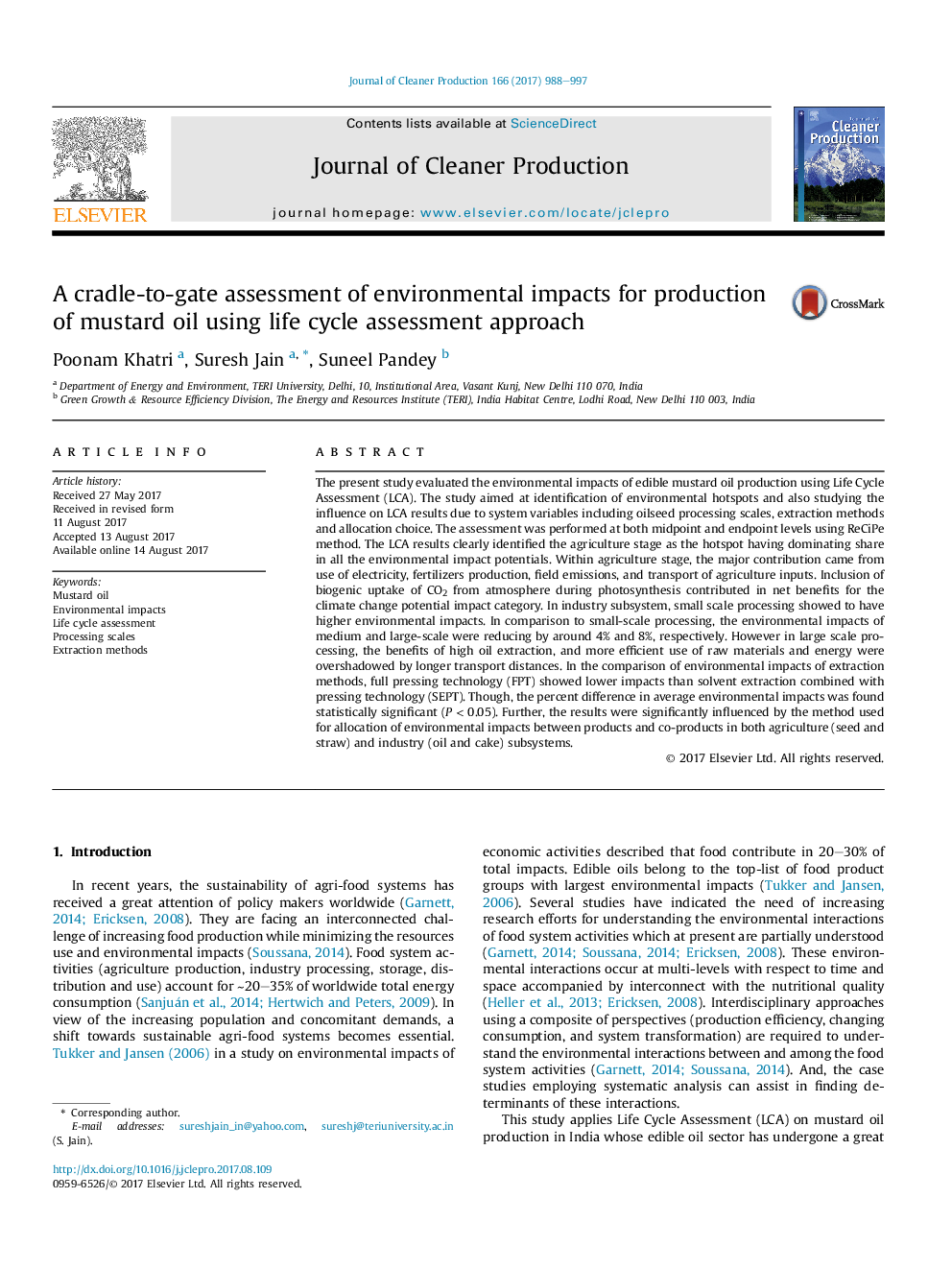| کد مقاله | کد نشریه | سال انتشار | مقاله انگلیسی | نسخه تمام متن |
|---|---|---|---|---|
| 5479965 | 1522088 | 2017 | 10 صفحه PDF | دانلود رایگان |
- A cradle-to-gate Life Cycle Assessment (LCA) of mustard oil production using ReCiPe method has been performed.
- Assessment has been conducted for different production scales and methods of producing mustard oil.
- Agriculture subsystem shows a major contribution in all the environmental impact potentials.
- The effect of changing the allocation criteria on overall environmental impacts was found statistically significant.
The present study evaluated the environmental impacts of edible mustard oil production using Life Cycle Assessment (LCA). The study aimed at identification of environmental hotspots and also studying the influence on LCA results due to system variables including oilseed processing scales, extraction methods and allocation choice. The assessment was performed at both midpoint and endpoint levels using ReCiPe method. The LCA results clearly identified the agriculture stage as the hotspot having dominating share in all the environmental impact potentials. Within agriculture stage, the major contribution came from use of electricity, fertilizers production, field emissions, and transport of agriculture inputs. Inclusion of biogenic uptake of CO2 from atmosphere during photosynthesis contributed in net benefits for the climate change potential impact category. In industry subsystem, small scale processing showed to have higher environmental impacts. In comparison to small-scale processing, the environmental impacts of medium and large-scale were reducing by around 4% and 8%, respectively. However in large scale processing, the benefits of high oil extraction, and more efficient use of raw materials and energy were overshadowed by longer transport distances. In the comparison of environmental impacts of extraction methods, full pressing technology (FPT) showed lower impacts than solvent extraction combined with pressing technology (SEPT). Though, the percent difference in average environmental impacts was found statistically significant (PÂ <Â 0.05). Further, the results were significantly influenced by the method used for allocation of environmental impacts between products and co-products in both agriculture (seed and straw) and industry (oil and cake) subsystems.
175
Journal: Journal of Cleaner Production - Volume 166, 10 November 2017, Pages 988-997
